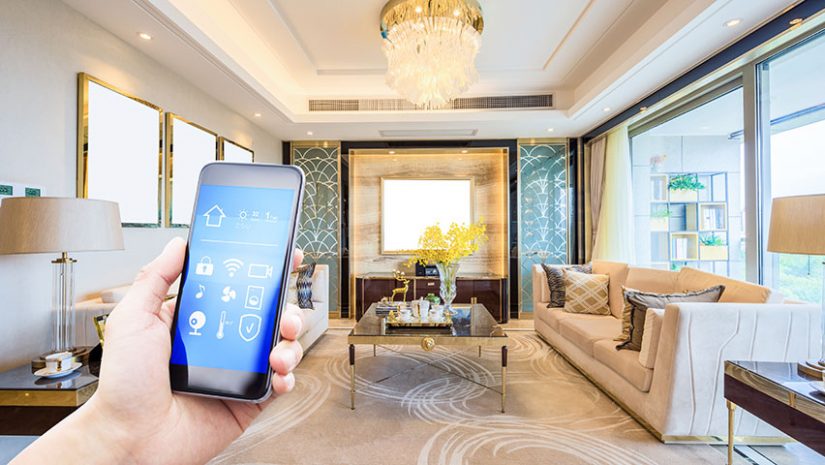Have you ever had to rush back to your house to check you’ve switched the water off or turned the heating out? You’ll appreciate a smart home.
Remote controlled appliances mean your white goods can be monitored from anywhere, cameras connected to your phone let you watch over your pets whenever you fancy, and voice assistants give you a helping hand around the house.
What is a smart home?
The term ‘smart home’ is used to describe a house that contains a communication network that connects different appliances and allows them to be remotely controlled, monitored and accessed, according to the Department of Trade and Industry.
Smart devices connect to the internet and many have smartphone apps allowing you to access and control them remotely over wi-fi.
It’s becoming easier to connect an entire home too. Broadband is faster, more reliable and more affordable than ever before. The improved signal range of Wi-Fi routers means that a single router can offer wireless coverage across more rooms in our homes, allowing more devices to be connected.
What’s more, low-priced networking equipment has made it cheaper to extend home networks into rooms that were difficult to cover using just a single Wi-Fi router. Even previously difficult properties, such as older homes with thick walls, can now benefit from a home network that covers the entire property.
What can a smart home do?
Using the technology within the house, you can control and see what is going on in your home, even when you’re not there using a smartphone, tablet or sometimes computer. For instance, if you’ve just got a brand new puppy and want to ensure they’re behaving themselves, you can install a home camera that allows you to check in on your pets whenever you want.
There is also the potential to make a big difference in the cost of your utility bills, as now there’s no need to burn money by forgetting to turn the heating off when you leave for work. By monitoring your heating, water and electricity, there’s far less chance of a large bill sneaking up on you.
Smart homes can also protect the most vulnerable in society. Some devices can trigger an alert if an elderly person fails to take their pills, falls over or is behaving outside their normal routine.
Smart home devices can also work together and for the few that don’t all is not lost, because a free service called If This, Then That (IFTTT) allows you to set up automated rules that combine smart devices with apps and information, like weather reports or your phone’s location. So even if devices aren’t designed to work together: your smart heating can switch on when you leave the office; or switch off if there’s an open window.
We will be launching our range of smart home solutions soon, in the meantime if you would like to know more or to book a free smart home consultation give us a call on 02393 100 260

